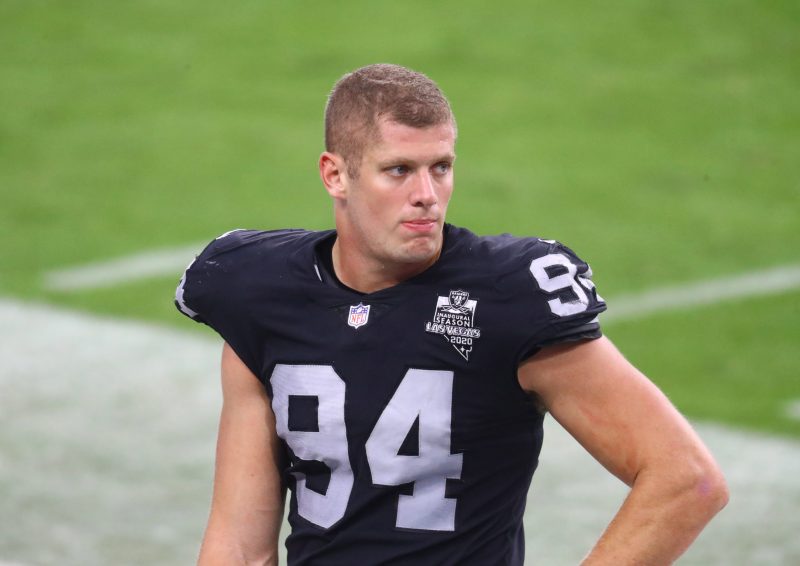It was in 2021 when Carl Nassib became the first active NFL player to come out as gay. The gravitational force of that moment changed everything. Nassib was then, and now, a hero. One example of his impact came not long after Nassib’s announcement when his father was approached by a crying woman.
Nassib’s father knew her but they weren’t close. It didn’t matter. Her son had watched Nassib’s video. That video in turn was the catalyst for the woman’s son to also come out. In this case, to his family. She relayed the entire story to Nassib’s father, who in turn told Carl. It was a remarkable moment. The beginning of many for Nassib and his impact.
Nassib didn’t just create a permission structure for any future NFL players who might want to make the same decision. He created that structure for anyone. To say that what Nassib did is historic is an understatement. But he isn’t done with trying to have a positive impact.
Nassib has continued to fulfill one of his biggest goals: creating a safer world for LGBTQ+ youth.
Nassib recently announced the NFL was again donating $100,000 to the Trevor Project, the leading suicide prevention and crisis intervention organization for LGBTQ+ young people. Its mission is to end suicide among that group.
NFL STATS CENTRAL: The latest NFL scores, schedules, odds, stats and more.
‘So when I came out back in 2021, I knew that would get a lot of attention,’ Nassib told USA TODAY Sports. ‘I wanted to make sure that attention was redirected to a really good cause.’
‘What I want to do is make sure everyone knows the facts about LGBTQ youth,’ Nassib added. ‘People don’t know that LGBTQ youth are four times more likely to harm themselves than their friends. They don’t know that the studies show if these kids have one affirming adult in their life, the risk of suicide goes down by 40 percent. So if you’re an uncle, aunt, coach, you can be that one adult and possibly save a kid’s life.’
The Trevor Project says that more than 1.8 million LGBTQ+ youth (ages 13-24) seriously consider suicide each year in the United States and at least one attempts suicide every 45 seconds.
The group’s research also found that 68% of LGBTQ+ young people reported that they had never participated in sports, with many citing concerns of discrimination and harassment from peers and coaches, fears of how others would react to their LGBTQ+ identity, and policies preventing them from playing on the team that matches their gender identity.
Nassib wants to change all of this. It’s his greatest fight.
It’s all been a part of Nassib’s journey which he describes this way:
‘It’s been incredibly rewarding. It’s invigorating. I’m a solution-oriented person. I hope there’s a world in the future where no kids are harming themselves. They feel like they don’t have to come out. They can be themselves. They can live their truest life.
‘I am every day very lucky to live the life that I live and be who I am. And that’s only because of all of the great people that have come before me in my community, and all the allies that have come before me. I have been afforded all of these privileges and rights and opportunities, and I feel especially charged to do my part to make sure that continues, because I want the next generation to have it better than I had.’
Wanting this is one of many things that makes Nassib special.
